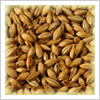
 Ethiopia: Local malting barley and malt production still not enough to meet brewing sector’s needs
Ethiopia: Local malting barley and malt production still not enough to meet brewing sector’s needs
Geletu Tafa, father of six children, is one of the over 20,000 smallholder contract farmers producing improved malting barley variety for Heineken Ethiopia. He lives in Arsi Tiyo district Dosha area farming five hectares land. Before starting to contract farm ‘Traveller’, a French origin improved malting barley variety from Heineken three years ago, he was producing wheat and other barley varieties, New Business Ethiopia reported on August 9.
“After I began using Traveller seed, my production on one hectare has increased to around 60-70 quintals from around 25-30 quintals. The money I get from selling one quintal of the new barley variety has also increased to around 1,000 birr (around $43 at current exchange rate) from around 600 birr I used to earn from other crops three years ago,” he says.
The expansion of breweries in Ethiopia, one of the fastest growing economies in Africa, has opened an opportunity for smallholder farmers like Geletu to earn more from their land by producing malting barley.
Currently there are seven breweries in Ethiopia with a total of 12 brewery plants installed across the country with an annual malting barley demand of 118,000 tonnes. Meanwhile the two malt factories in the country have the capacity of only providing a total of 52,000 tonnes of malt for breweries.
As a result the country, which is endowed with good weather for production of malting barley, is forced to spend the hardly earned hard currency for importing around 60% malt to meet the demand of the breweries. Heineken, Diageo, BGI, Dashen as well as the emerging Zebidar, Habesha and Raya are the breweries operating in Ethiopia.
In 2015 the country was forced to import over 63,000 tons of malt spending $38 million.
In order to end the import and help the farmers use the opportunity and earn good income, the government along with the breweries and donor agencies has been promoting the local production of malt barley.
Starting 2011 Ethiopian Institute of Agricultural Research (EIAR), the state agency with 17 research centers in the country, has been collaborating with four breweries in the country and Assela Malt Factory under private-public partnership.
“Since its establishment some 50 years ago has been engaged in approving imported malting barley varieties by the breweries, do hybrid and providing to farmers for domestication,” says Dr. Berhane Lakew, senior barley researcher at Holleta Agricultural Research Center of EIAR, one of the four centers that is working on barley.
“By financing the provision of improved seed varieties through regional agricultural bureaus, we are working with some 46,000 smallholder farmers in Amhara Region of Ethiopia, who supply their barley produce to Gondar Malt Factory. As a result we have been witnessing the reduction of our import from time to time and increase in the income of the farmers working with us,” says Abreham Zerihun, Public Relations Manager of Dashen Breweries, the largest brewery in the country in terms of production capacity.
Even though the production of malting barley by local farmers is increasing, the import of malt will continue at least for the coming few years because of the limited capacity of the two malt factories the country has in Assela and Gondar, according to Tarekegn Garomsa, local sourcing manager at Heineken Ethiopia.
“I hope the country will be in a position to produce enough malt for all breweries in two years – with the two malt factories (Soufflet Malt of France and Boortmalt of Belgium) which are on the process of opening two factories here,” he says.
Currently Heineken Ethiopia is working with 20,894 farmers including the emerging wealthy farmers such as Geletu, who are on average allocating one hectare for production of ‘Traveller’ malting barley variety of France and ‘Grace’ malting barley variety of Germany.
Назад
E-malt.com, the global information source for the brewing and malting industry professionals. The bi-weekly E-malt.com Newsletters feature latest industry news, statistics in graphs and tables, world barley and malt prices, and other relevant information. Click here to get full access to E-malt.com. If you are a Castle Malting client, you can get free access to E-malt.com website and publications. Contact us for more information at marketing@castlemalting.com .





